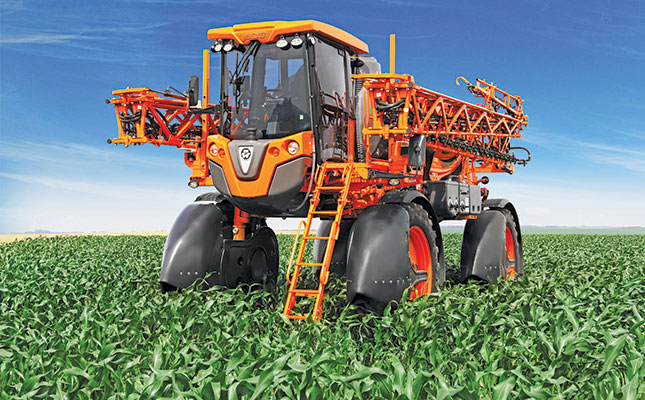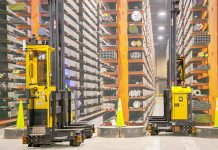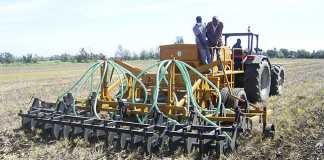
Photo: Supplied
Jacto’s self-propelled sprayers allow farmers to reduce fuel and agrochemical application costs, as well as minimise crop damage.
It is estimated that by 2050 there will be around 9,7 billion people on the planet. Feeding these people will be a huge challenge and will require an increase in agricultural productivity. Precision agriculture is an important tool to achieve this goal.
Precision agriculture consists of a series of mechanisms that uses data collected in the field to promote more efficient cultivation. These technological resources allow a panoramic management of production, optimising the use of inputs. This has two positive effects, namely an increase in profitability and a reduction in environmental impacts.
A step forward
Founded in 1948 by a Japanese immigrant in Brazil, Jacto has established itself as one of the most innovative companies in the manufacture of agricultural machinery in the world and is present in more than 110 countries.
With a strong investment in research and development, Jacto has stood out in the race for efficiency gains in spraying. South Africa is currently one of the most important markets for its self-propelled sprayers. The company’s expectation is to triple its share of the local
market within the next three years.
According to Jacto’s sales manager in South Africa, Stephan Strydom, there is growing demand for efficiency in South African agriculture.
“We want to bring the most sophisticated technology in the world to South African farmers. There is great room for efficiency gains, which are reversed in lower cost and greater profit margin,” he says.
The automatic operation of the nozzle-to-nozzle system, present in both Uniport 3030 and Uniport 4530, provides high-spraying accuracy, reducing the use of agrochemicals by 10%.
Today, an application of herbicide can be carried out, for example, with volumes below 30ℓ/ha, where previously 200ℓ/ha were used in the same area. This is thanks to the improvement brought about by the developed technologies.
Another advantage of the company’s self-propelled sprayers is the Unitrack steering system, which allows for faster and more precise manoeuvres, with a 35% smaller turning radius. This system reduces crop damage by up to 40% during manoeuvres.
The system enables manoeuvring of the four wheels, eliminating stepping out and re-entry of the field and considerably reducing the time of the manoeuvre.
The Uniport 4530 is equipped with a 36m boom that allows it to operate with low tyre pressure, reducing soil compaction and increasing crop productivity. When compared with equipment that has a 3 000ℓ tank and 30m booms, the Uniport 4530 has increased operating efficiency by up to 30% and reduced trampling by up to 17%.
The OTMIS system is another powerful tool for improving operational productivity, reducing costs, minimising environmental impact and maximising profit. In addition, it automatically directs Uniport, assists in spraying, minimises failures and overlaps and allows the operator to pay more attention to other equipment functions.
Initially designed for rugged terrain in Brazil, Jacto’s self-propelled sprayers are equipped with intelligent hydrostatic transmission (4×4) and independent automatic traction control, which provides greater traction capacity on different types of soil.
With independent air suspension and automatic height regulating valves, the system seeks to keep the chassis constantly level with the ground, bringing more stability to the booms and, consequently, higher spray quality.
Phone Jacto on 072 598 2790. Visit jacto.com













